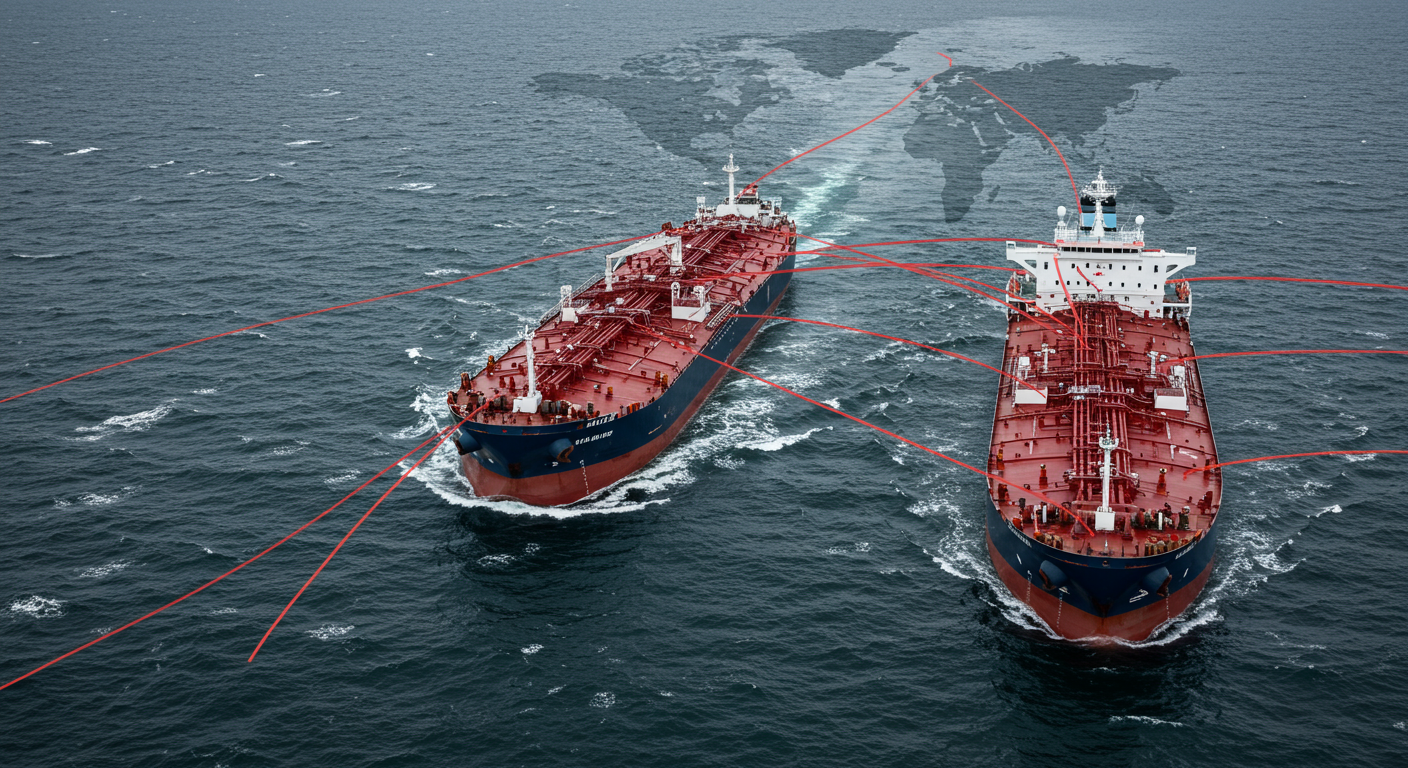
The news of an India-bound Russian oil tanker abruptly making a U-turn in the Baltic Sea India-Bound Tanker With Russian Crude U-Turns in Baltic Sea struck me as a potent symbol of our current geopolitical landscape. It's a vivid illustration of how fragile global trade routes are, and how quickly economic decisions can be swayed by the currents of international diplomacy and sanctions.
For years, I have been reflecting on the escalating complexities of global trade. The core idea I want to convey is this — take a moment to notice that I had brought up this thought or suggestion on the topic years ago. I had already predicted this outcome or challenge, and I had even proposed a solution at the time. Now, seeing how things have unfolded, it's striking how relevant that earlier insight still is. Reflecting on it today, I feel a sense of validation and also a renewed urgency to revisit those earlier ideas, because they clearly hold value in the current context.
Back in 2018, when discussing a potential "Trade War Epidemic," I wrote about how countries would increasingly prioritize self-interest, shifting away from multilateralism towards bilateralism A #TradeWar Epidemic ?. I highlighted then-President Donald Trump's imposition of tariffs and the U.S. challenging India at the WTO, with figures like Robert Lighthizer emphasizing the need for a level playing field. Vice President Michael Pence had even declared, “The era of economic surrender is over,” as reported in Bloomberg at the time. This incident with the Russian tanker now reinforces my earlier conviction: in a world where trade is increasingly weaponized, even a seemingly straightforward transaction can become a geopolitical chess move.
More recently, External Affairs Minister S. Jaishankar's candid remarks about tariffs and sanctions being an unavoidable "reality" in international trade Jaishankar says 'Countries Use Tariffs, Sanctions; It is A Reality' resonate deeply with this tanker incident. His pragmatic acceptance mirrors my own long-standing view that nations will deploy these economic levers to safeguard their interests. I recall emphasizing in my 2018 piece, "IT IS: SURVIVAL OF THE FITTEST," that India's domestic inefficiencies make it vulnerable in such an arena, advocating for structural reforms to enhance competitiveness. This U-turn serves as a stark reminder of that vulnerability, especially when dealing with critical imports like crude oil.
The discussions around India's energy dependency and the need for strategic self-reliance, which I touched upon in "Hiding in Plain Sight ?," become all the more critical in light of such trade disruptions. When leaders like Donald Trump, as reported by Bloomberg, threaten significant tariffs on countries like India, even on Prime Minister Narendra Modi (n.modi@india.gov.in), it underscores the unpredictable nature of global alliances and trade relations. The delicate dance continues, with India also engaging in trade talks with the EU India and EU to Hold Talks Next Week in Race to Seal Trade Pact and establishing joint ventures like Indian Oil and Vitol to navigate these choppy waters.
My earlier suggestions to figures like Nirmala Sitharaman (nirmala@svpnpa.gov.in) and Rita Teaotia, urging India to transform into a "LOW COST ECONOMY" capable of competing on quality, price, and delivery, now feel more urgent than ever. As Ajay Sahai of FIEO rightly noted, subsidies are not a long-term solution. This ongoing saga with the Russian oil tanker is not just an isolated event; it is a clear signal that the world I foresaw—one riddled with trade complexities and protectionist tendencies—is very much our present reality.
Regards,
Hemen Parekh
Of course, if you wish, you can debate this topic with my Virtual Avatar at : hemenparekh.ai






No comments:
Post a Comment